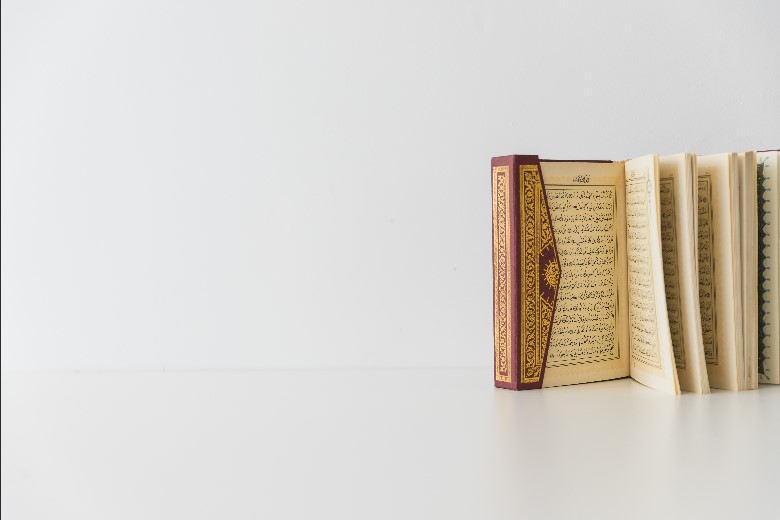Current Section: model

Lesson Rulings and Etiquettes for Reading the Noble Quran
Ruling of Memorizing the Quran
Aisha narrated that the Prophet ﷺ said: «Such is a person who recites the Quran and memorizes it by heart will be with the noble, righteous scribes (in Heaven).» (Al-Bukhari 4937)

Ruling of Reciting the Noble Quran
It is recommended for a Muslim to recite the Noble Quran, and to do so as much as he can. Allah the Exalted said: ﴾Indeed, those who recite the Book of Allah and establish prayer and spend [in His cause] out of what We have provided them, secretly and publicly, [can] expect a [profitable] transaction that will never perish﴿ [Fatir:29]
Ruling on Listening and Being Attentive to the Recitation of the Quran
It is obligatory for a Muslim to listen and pay attention to the recitation of the Quran if it occurs during one of the obligatory prayers and during in the Friday sermon, for Allah the Exalted says: ﴾So when the Quran is recited, listen to it and be attentive that you may receive mercy.﴿ [Al-'Araf:204]
It is recommended to listen and be attentive to the Quran for other occasions out of etiquette and reverence for the word of Allah the Exalted.
It is obligatory for everyone to believe in the Quran and act according to its rulings by permitting what is permissible and forbidding what is forbidden with it, standing by its prohibition, commanding in accordance with its command, and acting upon it.
Allah the Exalted says: ﴾Those to whom We have given the Book recite it as it should be recited﴿ (Al-Baqarah:121). Ibn Mas'ud and Ibn Abbas (may Allah be pleased with them) said, commenting on this verse: They permit what it has permitted and forbid what it has prohibited. They do not distort rulings from their contexts (Tafseer Ibn Kathir 1/403).
Abdullah bin Mas'ud (may Allah be pleased with him) narrates: If we would learn 10 verses of the Quran from the Prophet ﷺ, we would not learn learn the next 10 verses that were revealed after them until we knew what was within them (Al-Hakim 2047). His saying "what was within them" refers to implementable actions, as one of the hadith narrators explained.
A Muslim should be consistent in reading the Quran and should let a day go by without reciting something from the Quran so as not to learning_islam_dbt it or forsake it. Allah the Exalted says: ﴾The Messenger said, “O my Lord, my people have taken this Quran as a thing to be abandoned.﴿ [Al-Furqan:30]

Abu Musa (may Allah be pleased with him) narrates that the Prophet ﷺ said: «Commit yourself to the Quran, for by Him in whose Hand is my soul, it is surely more prone to break away than a camel in its bind» (Al-Bukhari 5033).

Etiquette of Reciting the Holy Quran
Proper etiquette must be observed to recite the Quran so its reading can be acceptable and rewarded. Some of these etiquettes are to be followed before its recitation, while others apply during its recitation.


